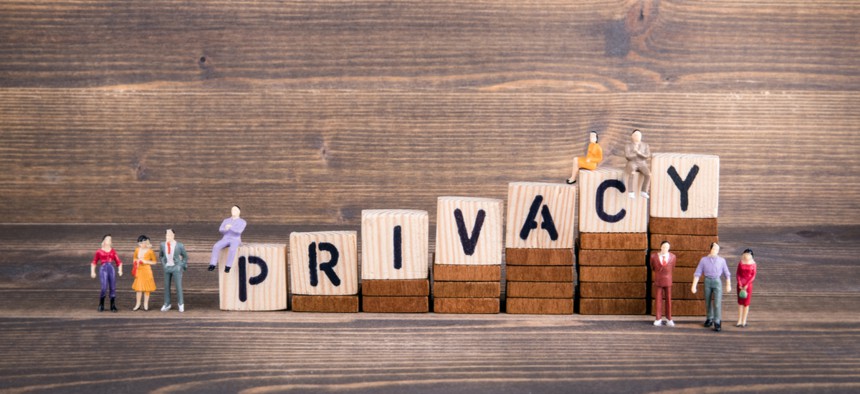House Lawmakers Want to Avoid a Patchwork of State Data Privacy Laws

stoatphoto/Shutterstock
Experts outlined what they would like to see included in a federal data privacy law.
House Consumer Protection and Commerce Subcommittee lawmakers pushed for a comprehensive, clear and first-of-its-kind federal data-privacy law rather than a patchwork of states' laws.
At the committee’s first hearing of the new Congress, Chairwoman Jan Schakowsky, D-Ill., said it is her hope to develop sensible legislation that not only protects American consumers, but promotes competitive markets and restores America’s faith in business and government.
“Without a comprehensive federal privacy law, the burden has fallen completely on consumers to protect themselves and this has to end,” Schakowsky said.
The hearing comes at a time when Americans face new reports of privacy compromises—data breaches and unauthorized data sharing by social media apps—noticeably frequently.
“We’ve been talking about it for years, and nothing has been done to address the problem. This hearing is the beginning of a long overdue conversation,” House Energy and Commerce Committee Chairman Frank Pallone, D-N.J., said.
Brandi Collins-Dexter, senior campaign director for media, democracy and economic justice at Color of Change, connected privacy rights to ensuring basic human rights. “If we fail in the mission to ensure our rights online are protected, we stand to render many of our offline rights meaningless,” she said in her testimony.
Dr. Roslyn Layton, a visiting scholar from the American Enterprise Institute, cautioned against adopting rules similar to the General Data Protection Regulation set by the European Union last May. She said small and medium European businesses may be lagging as a result of the GDPR, while the regulations implemented helped tech powerhouses like Google, Facebook and Amazon increase their market share.
“My hope is that Congress will avoid the mistakes of the GDPR and ultimately leapfrog Europe with a better framework based upon privacy enhancing technologies, a strong federal standard, and consumer education,” Layton said.
While who should draft the legislation was not explicitly stated in the hearing, witnesses were direct about what a bipartisan federal privacy law should include.
Witnesses unanimously agreed that America needs one uniform framework—not many fragmented laws that change across state borders. They generally agreed that the law should not discriminate against consumers based on class, ethnicity and beyond. They said it should have stronger protections for young people, foster innovation and competition amongst American businesses, and allow for more transparency that clearly defines reasonable uses and unreasonable abuses of sensitive personal data.
A Pew Research study revealed that even back in 2014, 91 percent of Americans agreed that “people have lost control over how personal information is collected and used by all kinds of entities.” As lawmakers and witnesses unanimously noted in the hearing, consumer confidence in security continues to deteriorate.
New privacy scandals around Facebook receiving sensitive health information and Google’s controversy around surveillance that came to light this month are adding significant momentum to the privacy debate and further solidify the need for a greater protection policy to be implemented as soon as possible.
Whether this Congress will be the one to pass new consumer privacy legislation was not explicitly evident by the end of the hearing, but Rep. Tony Cárdenas, D-Calif., made his position clear: “I hope we do."
The Senate Committee on Commerce, Science and Transportation will hold its own hearing on data privacy Wednesday.
NEXT STORY: Why the cyber fast track is stalled at DOD






